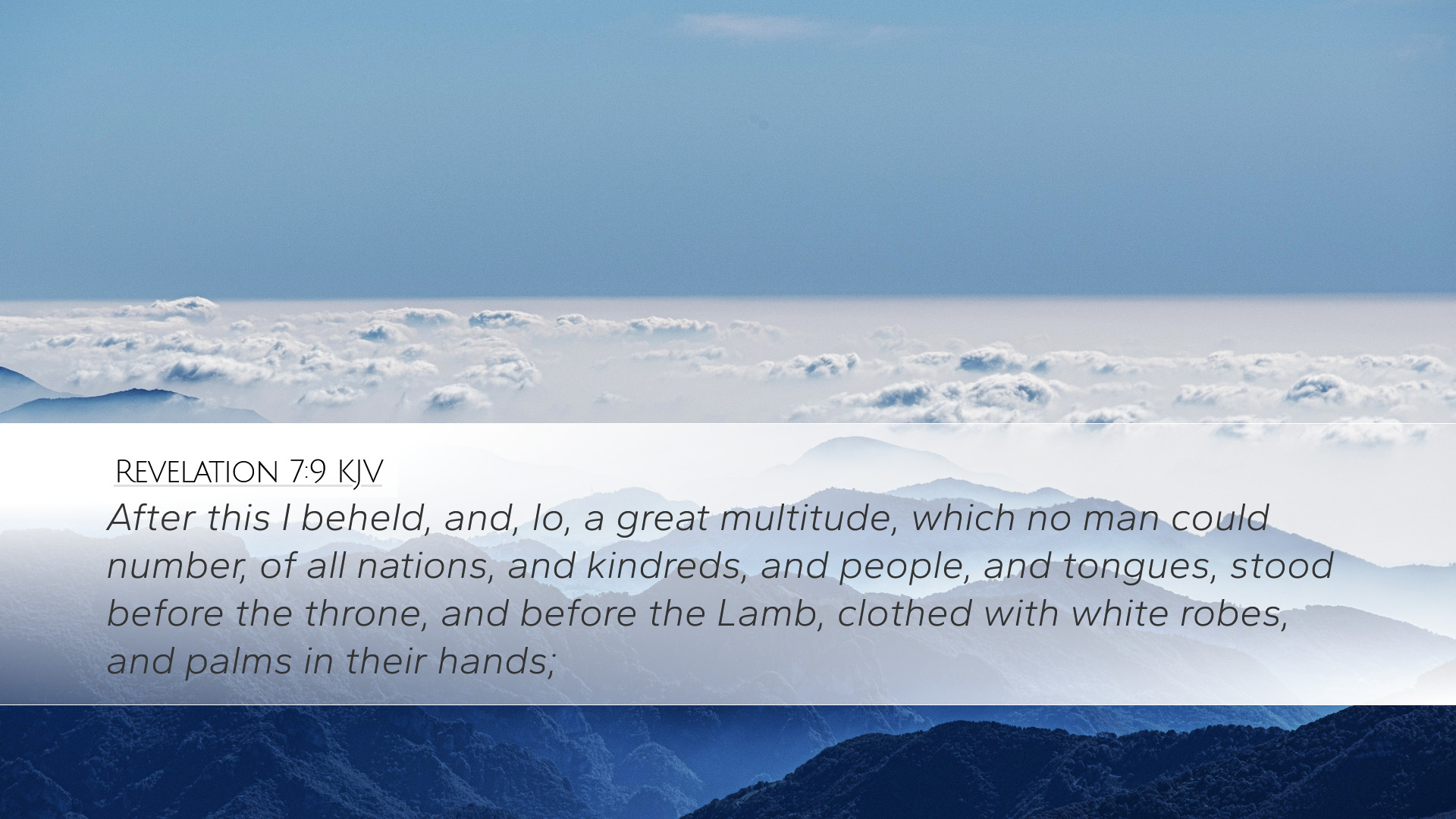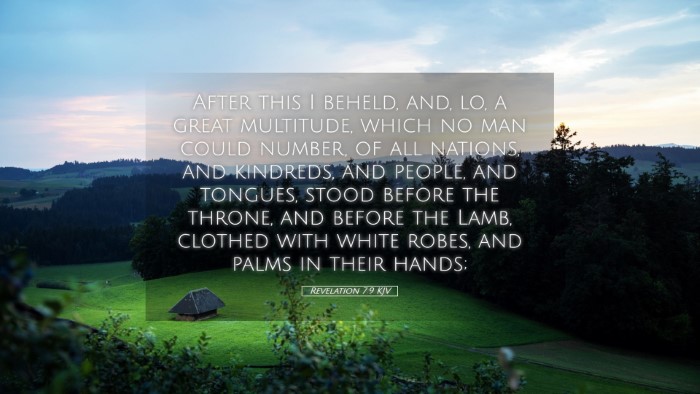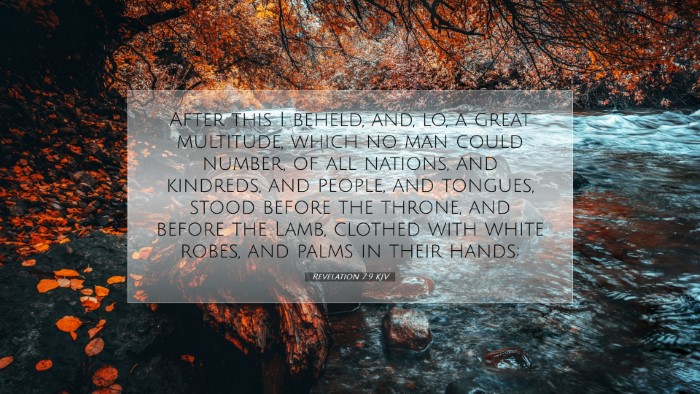Commentary on Revelation 7:9
Revelation 7:9 presents a profound vision of a great multitude standing before the throne of God. This verse is pivotal in understanding the inclusivity of salvation and the universal scope of the Gospel. The following commentary draws insights from several public domain sources, including Matthew Henry, Albert Barnes, and Adam Clarke, elucidating the theological implications and pastoral applications of this significant passage.
Text of Revelation 7:9
“After this I looked, and behold, a great multitude that no one could number, from every nation, from all tribes and peoples and languages, standing before the throne and before the Lamb, clothed in white robes, with palm branches in their hands.” (ESV)
Exegesis and Context
Contextual Overview: Revelation chapter 7 acts as an interlude between the sixth and seventh seals. It aims to offer hope and assurance amidst tribulation and suffering. The multitude described in verse 9 represents the culmination of God's redemptive work through Christ, showcasing the victory of the faithful from every epoch of history.
-
Matthew Henry: Henry emphasizes that this multitude signifies the success of the Gospel across the ages. He highlights that it transcends ethnic and cultural boundaries, illustrating the fulfillment of the Great Commission to make disciples of all nations (Matthew 28:19).
-
Albert Barnes: Barnes elaborates on the imagery utilized in this verse, noting that the "white robes" symbolize purity and righteousness. He connects this imagery to the idea of being washed clean through the blood of the Lamb (Revelation 7:14), signifying the transformative power of faith in Christ.
-
Adam Clarke: Clarke provides insight into the notion of the "great multitude." He argues that the number cannot be quantified, indicating the vastness of God's grace that extends beyond human comprehension. This serves to highlight the theme of hope and inclusion for believers of all backgrounds.
Theological Implications
The vision of the great multitude also provides vital theological insights:
-
Inclusivity of the Gospel: The phrase “from every nation, from all tribes and peoples and languages” emphasizes the inclusivity and universality of the Gospel message. God’s redemptive plan encompasses all humanity, breaking down barriers of ethnicity, language, and culture.
-
Sovereignty of God: The multitude's presence before the throne signifies the sovereignty of God in salvation. It depicts the assurance that those redeemed come not by human effort but through God’s sovereign grace, depicted vividly in the act of standing before the Lamb.
-
Victory and Hope: Clarke and Barnes underscore the victorious nature of this multitude. They represent those who have triumphed over tribulation through their faith in Christ, offering believers present insights into the hope and perseverance required as they navigate their journeys.
Pastoral Applications
For pastors and church leaders, Revelation 7:9 offers significant pastoral implications:
-
Encouragement for Diversity: The vision encourages a diverse congregation that reflects the multitude of believers. Pastors are called to embrace and promote inclusivity within the church, reflecting the heavenly reality where all are welcomed.
-
Hope in Suffering: In times of suffering, this passage provides assurance that their struggles have a purpose, leading to a glorious end. Pastors can draw from this to offer hope to their congregants facing trials, reminding them of the heavenly reward awaiting them.
-
Call to Evangelism: Understanding the implications of this multitude should ignite a renewed passion for evangelism. The church is called to participate actively in the Great Commission, reaching out to every language and culture, knowing that all are invited to partake in the grace of God.
Conclusion
Revelation 7:9 beautifully encapsulates the hope, inclusiveness, and sovereignty of God’s redeeming work. As pastors, students, theologians, and scholars delve into this passage, they are reminded of the vastness of God’s grace and the promise of victory for all who believe. This multitude serves as a powerful reminder to look towards the future with assurance, faith, and an uncompromising commitment to share the Gospel with all nations.


